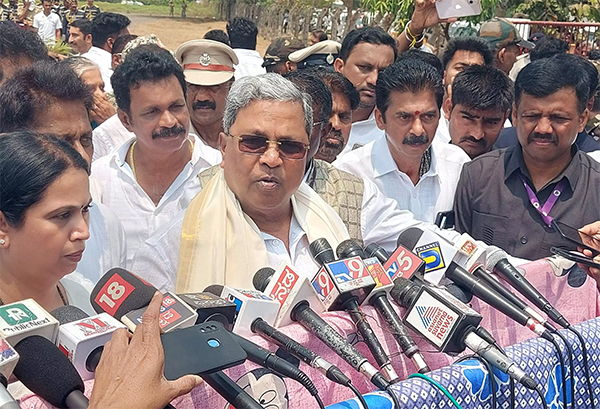
Hubballi: Chief Minister Siddaramaiah has criticized former Chief Minister Basavaraj Bommai, questioning his change in stance on Waqf property protection. Siddaramaiah pointed out that Bommai, during his tenure as CM, had pledged to safeguard encroached Waqf properties, but now appears to have shifted his position for political reasons.
Speaking to the media on Monday, Siddaramaiah remarked that the BJP is now politicizing the issue of Waqf properties. He highlighted that during the BJP government's tenure, notices were also issued regarding these properties, and the public is aware of it.
CM Siddaramaiah further mentioned that he has instructed ministers H.K. Patil and Krishna Byre Gowda to retract any eviction notices and nullify unauthorized land record changes. He emphasized that no farmers, irrespective of their religion—Muslim, Hindu, or Christian—should be evicted.
On the issue of tax injustice from the central government, Siddaramaiah stated that Karnataka has raised concerns, particularly with the 16th Finance Commission delegation. Despite contributing over ₹4.5 lakh crore in taxes, Karnataka receives only around ₹55,000-60,000 crore in return, which Siddaramaiah called unfair.
He also addressed BJP’s ongoing protests over Waqf property issues, stating that these protests are politically motivated. The BJP, he alleged, often neglects real issues in favor of making false allegations for political gain.
Responding to criticisms of the state's guarantee schemes, Siddaramaiah defended these initiatives as part of development. He cited that ₹52,000 crore is allocated for these guarantee schemes, while an additional ₹60,000 crore is invested in development projects like irrigation, public works, and rural infrastructure, questioning why these shouldn't be seen as progress.
